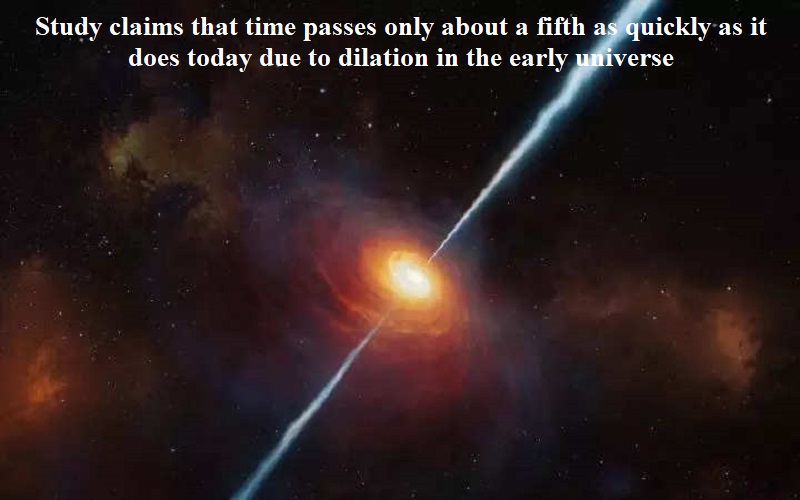
A recent study has put forward the claim that time passed much more slowly in the early universe, only about a fifth of its current rate, due to a phenomenon called dilation. This conclusion was reached by scientists who observed a class of powerful black holes known as quasars.
The study, which was published in the journal Nature Astronomy, involved monitoring a sample of 190 quasars over a period of more than two decades across various wavebands. These observations date back approximately 12.3 billion years, when the universe was about one-tenth of its current age.
To arrive at their findings, the researchers compared the brightness of these ancient quasars, dating back around 1.5 billion years after the Big Bang, with that of quasars observed in the present day. They discovered that certain fluctuations that occur within a specific timeframe today took place five times more slowly in the most ancient quasars.
Lead author of the study, Geraint Lewis from the University of Sydney, described the phenomenon as watching a movie in slow motion. The brightness of quasars changes over time due to the complex physics occurring in the spinning disk of matter surrounding a black hole moving at nearly the speed of light. The changes in brightness resemble fluctuations seen in the stock market, with small-scale jitters and long-term trends punctuated by sharp fluctuations.
Quasars are extremely massive black holes located at the centers of galaxies, many times larger than our Sun. They have voracious appetites, devouring surrounding matter due to their immense gravitational pull, while also emitting massive amounts of radiation and high-energy particle jets.
The concept of time dilation stems from Albert Einstein’s general theory of relativity, which suggests that time and space are interconnected and that the universe has been expanding since the Big Bang. Einstein postulated that ancient cosmic events should appear slower compared to modern ones, and this effect is now known as time dilation. The study’s results further support this understanding of an expanding universe.
It is important to note that time did not actually move in slow motion during that era. If one were to travel back in time to that period, a second would still feel like a second. However, from the perspective of someone in the present day, a second in the past would unfold as five seconds now.
The concept of time dilation was also explored in Christopher Nolan’s film “Interstellar.” The crew near the black hole experienced time passing incredibly slowly, while those on Earth experienced time as expected. As a result, the astronauts near the black hole aged only a few hours, while decades had passed on Earth.

Post Your Comments